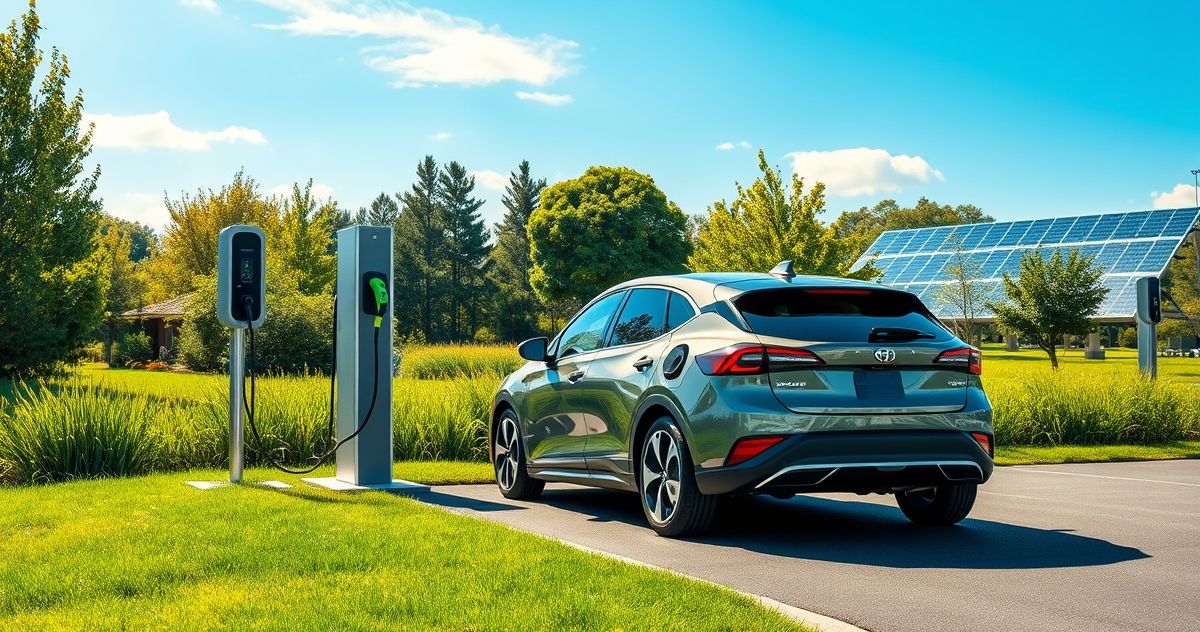Understanding the Plug-in Hybrid Vehicle Credit
The Plug-in Hybrid Vehicle Credit is a tax incentive provided by the U.S. government aimed at encouraging the adoption of environmentally friendly vehicles. This credit is specifically targeted at plug-in hybrid vehicles, which are part of a growing market for eco-friendly transportation solutions. By offering a financial incentive, the government hopes to reduce the overall carbon footprint and promote sustainable energy use within the transportation sector.
Purpose of the Plug-in Hybrid Vehicle Credit
The primary purpose of the Plug-in Hybrid Vehicle Credit is to stimulate consumer interest in electric and plug-in hybrid vehicles. These vehicles are more environmentally friendly compared to traditional gasoline-powered cars, as they emit fewer pollutants and rely more on electricity—a cleaner energy source. Offering a tax credit makes these vehicles more financially accessible to consumers, thereby encouraging more people to choose green transportation options. This aligns with broader governmental objectives to lower emissions and combat climate change.
Key Features of the Plug-in Hybrid Vehicle Credit
The credit amount varies depending on the specific model and battery capacity of the vehicle purchased. Generally, the credit can range from $2,500 to $7,500. The eligibility criteria typically include:
- The vehicle must be purchased new.
- It must be intended for use primarily in the United States.
- The vehicle must have a significant electric-only range and must be capable of being recharged from an external source.
The credit is non-refundable, meaning it can reduce your tax liability to zero but will not entitle you to a refund. Additionally, the credit phases out for each manufacturer once they sell more than 200,000 qualifying vehicles.
Filing and Compliance Requirements
To claim the Plug-in Hybrid Vehicle Credit, taxpayers must complete and submit Form 8936, Qualified Plug-in Electric Drive Motor Vehicle Credit, with their federal tax return. The form requires details such as the make, model, and year of the vehicle, as well as the Vehicle Identification Number (VIN).
It is crucial for taxpayers to ensure that they meet all eligibility requirements and submit accurate information. Any discrepancies or failure to meet the criteria can result in disqualification from receiving the credit.
Penalties for Non-Compliance
While there are no direct penalties for improperly claiming the Plug-in Hybrid Vehicle Credit, incorrectly claiming tax credits can lead to audits and adjustments by the Internal Revenue Service (IRS). If the IRS determines that a taxpayer has claimed the credit erroneously, they may recalculate the taxpayer’s liability, potentially resulting in additional tax owed, plus interest and penalties.
Therefore, it is imperative to maintain thorough records and documentation of the vehicle purchase and to ensure that the vehicle meets all necessary requirements for the tax year you claim the credit.
Importance of the Plug-in Hybrid Vehicle Credit
The significance of the Plug-in Hybrid Vehicle Credit extends beyond individual tax savings. It plays a vital role in national policy efforts to transition toward clean energy. By reducing the cost barrier, this credit helps expand the market for electric vehicles, which in turn prompts innovation and reduction in greenhouse gas emissions. Each plug-in hybrid vehicle on the road contributes to lowering the carbon footprint and advancing renewable energy adoption.
Additionally, this credit signifies an important aspect of financial planning for consumers who are considering purchasing a new vehicle. It can influence the decision-making process by making environmentally conscious options more feasible. In this way, the credit not only serves as a financial incentive but also as a motivator for sustainable consumer behavior.
Conclusion
In summary, the Plug-in Hybrid Vehicle Credit is an essential incentive for both taxpayers and policymakers in the shift towards renewable energy. Understanding its requirements and implications is critical for taxpayers who aim to benefit from this tax credit while supporting environmentally friendly initiatives. As the green vehicle market continues to grow and evolve, keeping informed about incentives like these will be integral to both personal finance and environmental conservation strategies.

